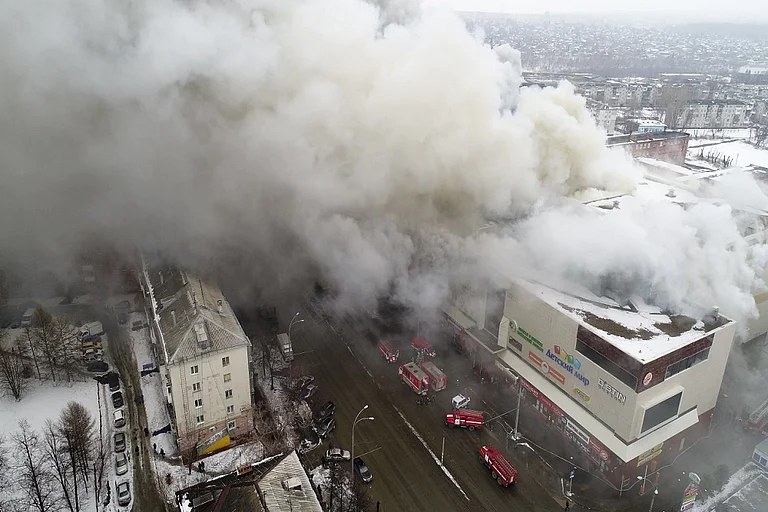At least 29 Palestinians were killed and dozens wounded after an Israeli strike hit tents outside a school in Abassan town, where displaced Palestinians were sheltering, near Khan Younis in southern Gaza early this week. This is the fourth Israeli attack on a school in Gaza in the last four days.
The latest offensive comes on the heels of a new mass evacuation order given for parts of Khan Younis and Gaza City, forcing tens of thousands to flee. The war on Gaza has now entered its ninth month, killing over 38,000 Palestinians, and internally displacing close to 2 million people, according to Gaza’s Ministry of Health.
Gaza death toll
Despite the official figures given by Gaza’s health ministry, that pour in erratically due to the ongoing war, the death toll is expected to be far higher given the shortages of food, clean water, sanitation and shelter, a latest study by Lancet journal revealed.
The study pointed out that the accumulative death toll could reach more than 1,86,000 people : this figure is higher than the official toll because the latter does not take into account thousands of dead buried under rubble and indirect deaths caused due to destruction of health facilities, food distribution systems and other public infrastructure. “In recent conflicts, such indirect deaths range from three to 15 times the number of direct deaths,” the study said.
If the study’s estimate is to be considered, it would mean that almost eight per cent of Gaza’s pre-war population of 2.3 million, would be wiped out as a result of the war.
Is there any progress in ceasefire efforts?
Even as international mediators including the United States, Egypt and Qatar met with Israeli officials in Doha to decide on a ceasefire proposal, Israeli Prime Minister Benjamin Netanyahu has maintained that he will not sign any deal forcing Israel to stop its 'campaign' in Gaza without eliminating Hamas.
Under the proposed deal, Hamas will release the elderly, sick and female hostages, Israel will withdraw from cities in Gaza, and release Palestinian detainees as part of an initial six-week truce phase.
The subsequent phases could see the release of the remaining male hostages, both civilians and soldiers, in return for additional Palestinian prisoners and detainees. Eventually, any remaining hostages would be returned, including bodies of dead captives, and a start could be made on the immensely expensive and complex task of reconstructing Gaza.
While the White House has termed this proposal as a breakthrough, the agreement is not final yet. Leaders of Israel, US, Egypt and Qatar will meet again in Doha this week to decide on the deal.
How much of Gaza’s infrastructure has borne the onslaught of the war?
According to a report by the World Bank in April 2024, 62 per cent of all homes in Gaza have been destroyed since October 2023, leaving more than a million people homeless. The estimated value of damage to housing units in Gaza is $13.3 billion.
Moreover, the wounded have limited access to critical healthcare as 84 per cent of all health facilities have been damaged or destroyed, the report found. Basic necessities like clean water and sanitation have suffered damages, causing it to deliver less than five per cent of its previous output.
All of Gaza’s 625,000 students have been pushed out of the education system, the report found. With closure of schools, UN experts have warned that women and girls face multifaceted risks, including increased gender-based violence. More than one million Palestinian children in Gaza, experts also say, are now in need of mental health and psychosocial support and will suffer the trauma of this war throughout their lives.



























